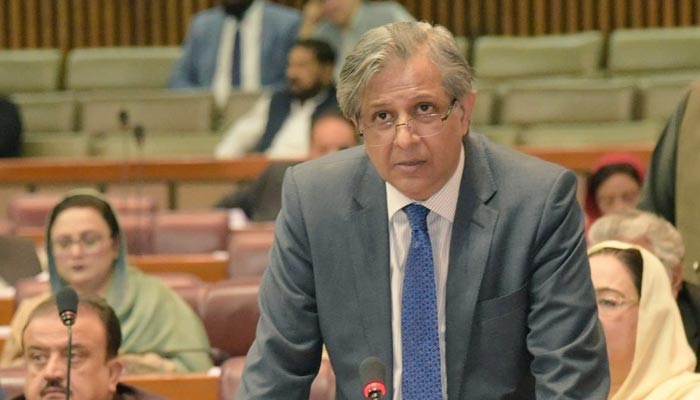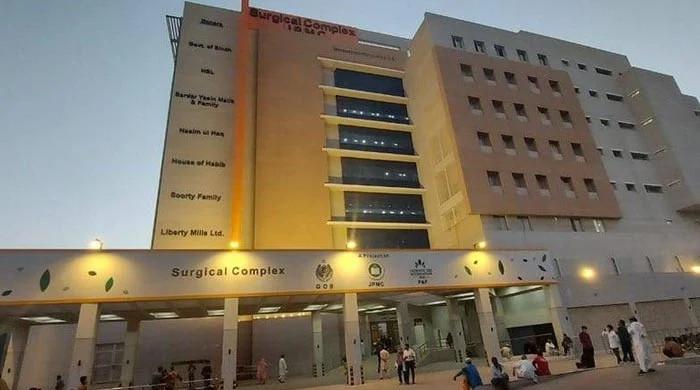India holds right to River Ravi under Indus Water Treaty, says law minister
Pakistan cannot move ICJ against India's "water aggression", says Azam Nazeer Tarar
April 23, 2024

- Calling Attention Notice focuses on India's water aggression.
- PTI's Zartaj Gul slams Tarar for accepting India's rights.
- Azam Nazeer Tarar says legal issues shouldn't be politicised.
Federal Law Minister Azam Nazeer Tarar has said that India has the right to the River Ravi water under a treaty, which legally binds Pakistan not to move the International Court of Justice (ICJ) against the neighbouring country's "water aggression".
"There is a water treaty between Pakistan and India. The right to water on the River Ravi belongs to India, and we cannot interfere with it," Tarar said during the proceeding of a Calling Attention Notice presented to discuss India's actions in the National Assembly on Tuesday.
"On this issue, recourse cannot be made to the International Court of Justice against India," he added.
Under the 1960 Indus Water Treaty signed between the two countries India claims the waters of Rivers Ravi, Sutlej, and Beas.
Speaking on the floor of the lower house of parliament PTI MNA Zartaj Gul, who tabled the notice, came down hard on Tarar saying today the law minister had accepted India's right over the River Ravi, which was regretful. Responding to Gul, the law minister said that legal issues should not be politicised.
“This [Indus Water Treaty] was signed in 1960, however, India wants to exit it, but the ICJ has restrained the latter from pulling out of it,” the law minister said, adding that wars had been fought over this issue between the two countries.
He also said however Pakistan did succeed on the issue of the Kishanganga Hydroelectric Project.
The News International, citing Indian media, reported that India halted the flow of water from River Ravi to Pakistan with the completion of the Shahpur Kandi barrage, as per media reports cited by the Times of India.
Shahpur Kandi barrage is situated on the border of Punjab and Jammu and Kashmir.
According to the report, Indian Illegally Occupied Jammu and Kashmir (IIOJK) region will now benefit from the 1,150 cusecs of water that was previously allocated to Pakistan. The water will be used for irrigation purposes for over 32,000 hectares of land in the Kathua and Samba districts.
The Shahpur Kandi barrage project, which is crucial for irrigation and hydropower generation, has faced numerous challenges over the past three decades. However, it is now nearing completion.











